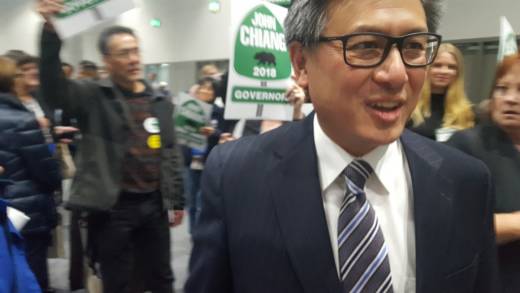Polls show that among the candidates running for governor, state Treasurer John Chiang is struggling to get traction. Yet Chiang says he’s the right guy to defend California against attacks from the Trump administration, and he points to two defining moments in his political career that he says prove his point.
Speaking at the California Democratic Party convention earlier this year, he began by listing all the times he’d stood up to what he called “big powerful interests," including an incident with former Republican Gov. Arnold Schwarzenegger.
"As controller, I stood up to the Governator and won," Chiang told the cheering crowd.
In 2008, Schwarzenegger ordered the pay of nearly 200,000 state employees to be reduced to the federal minimum wage until the Democratic-controlled Legislature passed a budget the governor supported. Chiang, who was state controller at the time and responsible for cutting the checks, refused.
“They were innocent parties to a political fight and they needed a champion," Chiang said. "They were the underdogs and they shouldn’t have been used as a political pawn.”
